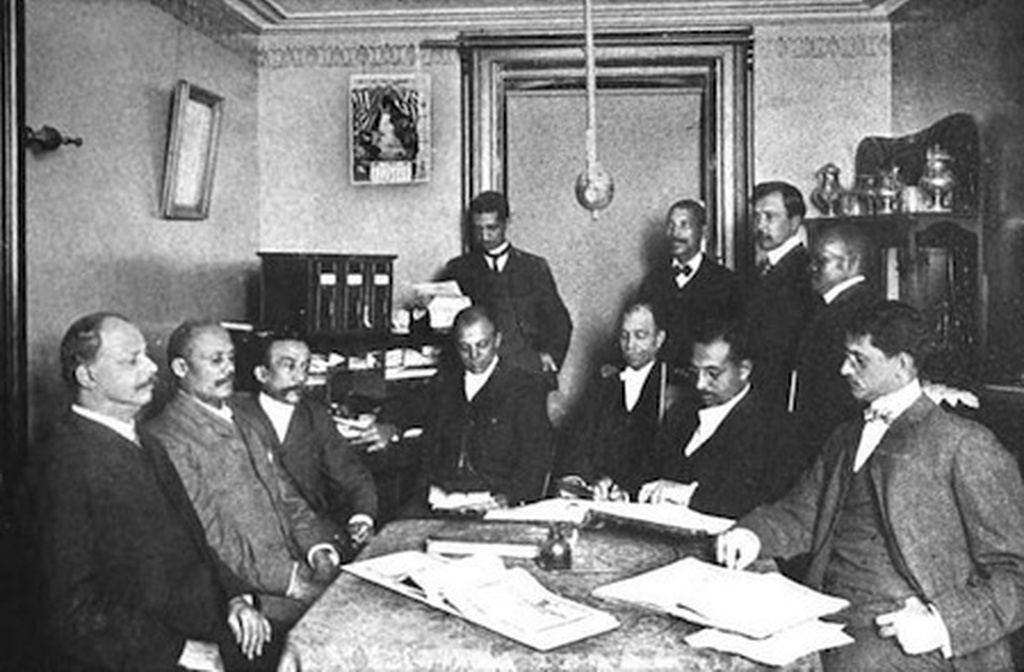
Old-Line Americans
Apart from the Indians, most of us are immigrant stock of relatively recent origin. Two groups have a long history here, the English and the Negroes, and both have English names and deep roots in the United States. These two groups best qualify as "old-line Americans" and "real Americans," because their lives, culture, and outlook are most formed by an American tradition. The United States is their country in a deeper sense.

- R. J. Rushdoony
(Reprinted from A Word in Season, Vol. 4 [Vallecito, CA: Ross House Books, 2012], 1-3.)
Our experiences as a child often color our thinking as adults.
I lived as a child in California. My immigrant parents, refugees from Armenia and the Turkish massacres, moved to California from New York a few weeks after my birth in 1916. We lived on a farm near Kingsburg, a Swedish town. Even when I was in high school, Kingsburg's mayor, a Swede, spoke a heavily accented English. Besides the Swedes, there were Armenians, Danes, Portuguese, Japanese, Mexicans, and a few others. When I started kindergarten, my English, like that of the other children, was limited. In the first grade, I met my first "real American," an elderly woman teacher named Mrs. Pinkley. I have forgotten the names of others of my early teachers, but I remember hers, because we were all impressed by this "real American." Years later, I realized that a very few old-line Americans did live in the area, but none were near us.
In the early 1920s, when my father became pastor of an Armenian church in Detroit, we left by train for that city. As a youngster, it was for me a great adventure as well as a major dislocation. On board the train, I was immediately interested in the man who seemed to me to be the most important man running the train, and the strongest, the Pullman porter. He was also the first black man I had ever seen. I followed him around, to his tolerant amusement, and I began to ask questions. As a boy in Kingsburg, I knew that there all of us identified people in terms of their country of origin: "What country does your family come from?" Accordingly, I asked him the same question, and, "What language did they speak?" The answers were surprising: he came from Chicago, and his family from Alabama. His grandparents? Alabama. His great-grandparents, his great-great-grandparents? He was amused: "As far back as I know, Alabama," and all spoke English. I then knew that I had met my second "real American."
Looking back years later, I realized how right I was. Apart from the Indians, most of us are immigrant stock of relatively recent origin. Two groups have a long history here, the English and the Negroes, and both have English names and deep roots in the United States. These two groups best qualify as "old-line Americans" and "real Americans," because their lives, culture, and outlook are most formed by an American tradition. The United States is their country in a deeper sense.
The presidential candidacy of Jesse Jackson was a noteworthy step in American history, but it was not without some unhappy aspects. In particular, Jackson played the role of the black outsider demanding entrance. Valid reasons for this stance are by no means lacking, but the more important and positive fact that needs emphasis and development is that of the insider.
My perception as a child was right. Blacks are old-line Americans. As such, they have a major stake in American life in the protection and development of their country.
In Europe, there are growing hostilities against the large members of Middle Eastern minorities who came there after World War II to fill the needs for workers. In Africa, there are racial and intertribal hostilities of major character. In Asia, we find that India, Pakistan, and other countries have ancient and explosive racial conflicts.
The United States and the Americas are almost alone in working to relegate such tensions to past history. In that effort, blacks have a necessary role as old-line Americans working to strengthen and develop the American hope.

- R. J. Rushdoony
Rev. R.J. Rushdoony (1916–2001), was a leading theologian, church/state expert, and author of numerous works on the application of Biblical law to society. He started the Chalcedon Foundation in 1965. His Institutes of Biblical Law (1973) began the contemporary theonomy movement which posits the validity of Biblical law as God’s standard of obedience for all. He therefore saw God’s law as the basis of the modern Christian response to the cultural decline, one he attributed to the church’s false view of God’s law being opposed to His grace. This broad Christian response he described as “Christian Reconstruction.” He is credited with igniting the modern Christian school and homeschooling movements in the mid to late 20th century. He also traveled extensively lecturing and serving as an expert witness in numerous court cases regarding religious liberty. Many ministry and educational efforts that continue today, took their philosophical and Biblical roots from his lectures and books.